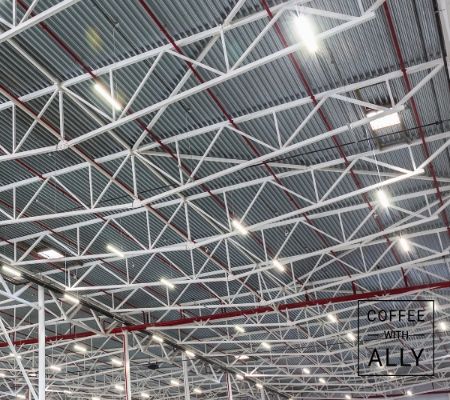
The Top 3 Manufacturing Challenges in Nigeria and How to Overcome Them
In 2020, Nigeria's manufacturing sector experienced a -2.75% decline in real GDP. While this can be attributed to the COVID-19 pandemic, there are other underlying issues. The manufacturing sector in Nigeria, for example, currently faces numerous challenges, including difficulty obtaining loans and high interest rates, inadequate infrastructural facilities, inability to access raw materials, an influx of substandard products into the market, difficulty sourcing FOREX, and the Naira's insufficient purchasing power.
Here are the top three challenges facing the sector:
Access to Funding and Loans
The lending facilities for business in Nigeria are not favorable to companies and entrepreneurs. The interest rate is over 11.5 % for all loan facilities. Still, the commercial bank interest rate for the manufacturing sector as of July 9, 2021, was between 7–27%, and that's the minimum rate, depending on the deposit money bank (DMB).
Also, DMBs are always skeptical of giving out loan facilities to manufacturers since they are characterized as high-risk, long-term loans, which usually ends in bad debt if the producer cannot repay the loan. For the manufacturers, the inability to access these loans delays production, leading to an increase in factors of production, failure to purchase machinery and equipment needed to meet production needs, and reduced competition in domestic production, resulting in a monopoly and increased prices.

Poor Infrastructure Facilities
For manufacturers, an insufficient power supply is an issue that has existed for decades. In fact, many Nigerian factories run on diesel or gasoline. The Manufacturers Association of Nigeria (MAN) revealed that its members spent over N81.91 billion on alternative energy sources in 2020 alone, a figure that has since increased due to fluctuating oil prices.
In addition, the lack of access routes for the transportation of raw materials or the distribution of goods affects the manufacturers' revenue. Manufacturers, for example, may need to deliver perishable goods within a certain time frame before they spoil. The wrong road network thus becomes a significant impediment, along with a loss of goods and money owing to accidents caused by dilapidated roadways. Not only that, manufacturers also have to deal with bad road conditions and the absence of an efficient traffic management system when clearing raw materials or machinery shipped to Nigerian ports.
Inability to Access Raw Materials
When Nigeria's major manufacturing industry had easy access to raw materials, it was able to produce more. However, recent insecurity challenges in agrarian states have reduced farming, making raw materials scarce. This scarcity has caused manufacturing flaws by raising the prices of production elements, causing the overall cost of manufactured goods to rise in the market.
Sweet Tips from Ally:
Infrastructure problems can only be resolved if the government prioritizes rehabilitation and the construction of state-of-the-art facilities and revamps the power sector or invests in green and renewable energy sources like solar, making them affordable to citizens. More urgently, the government must be proactive in strategically resolving Nigeria's security concerns to prevent other food crises caused by a drop in production and the inability to access raw materials. If you are a manufacturer, make sure you are staying on top of all these barriers!

Would you like a
coffee with ally?
and get tips on how to grow your business!














start a conversation